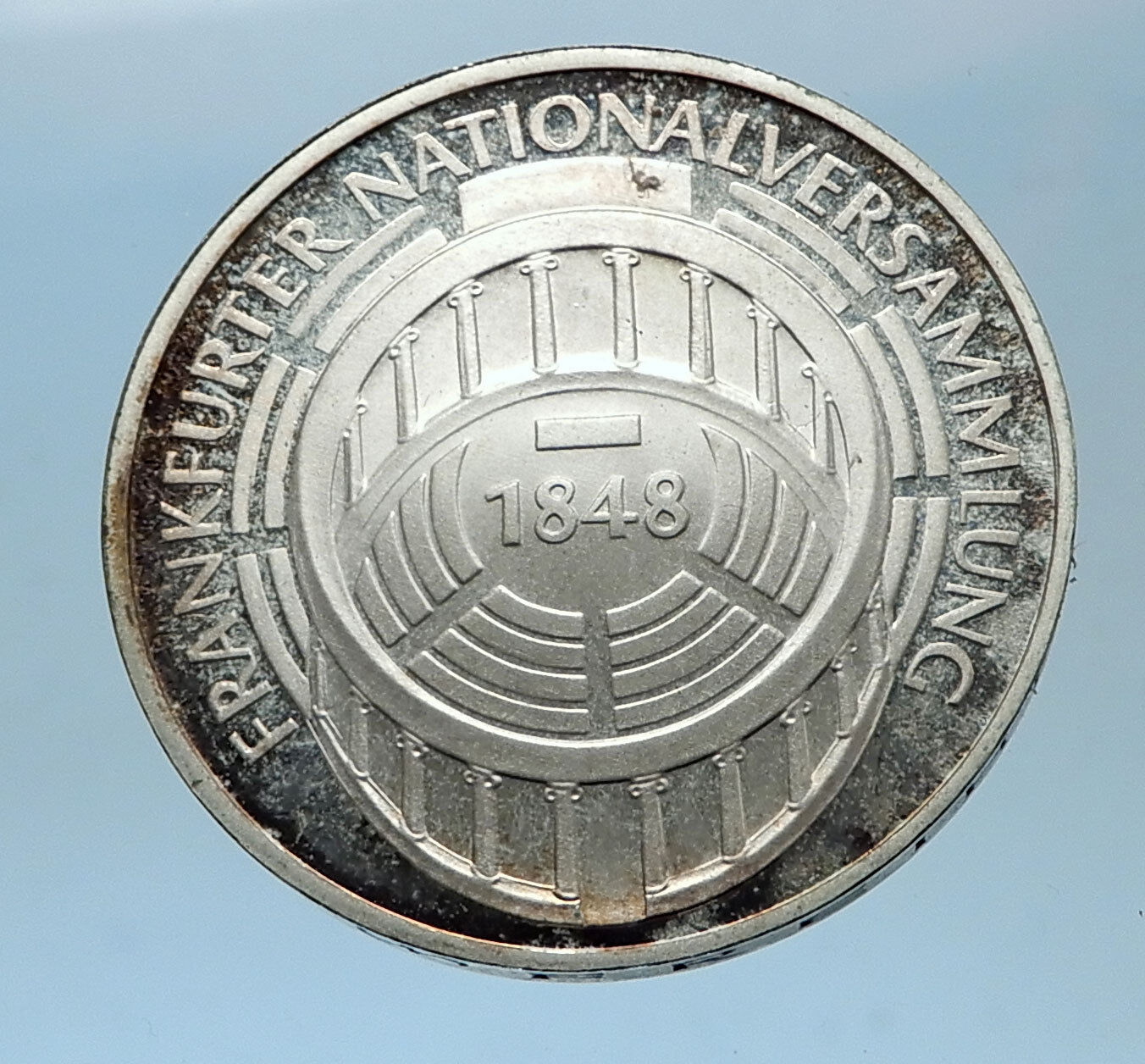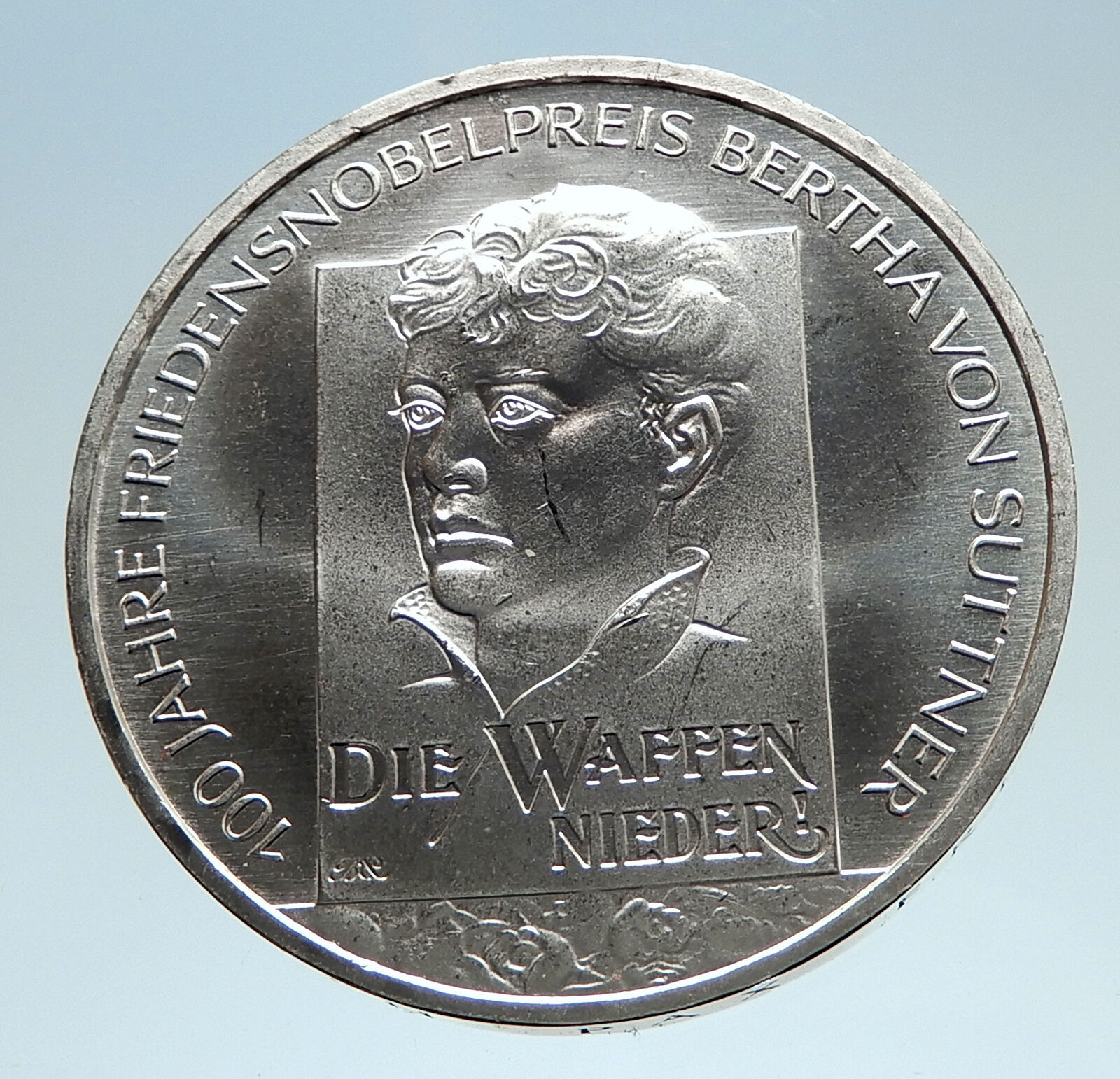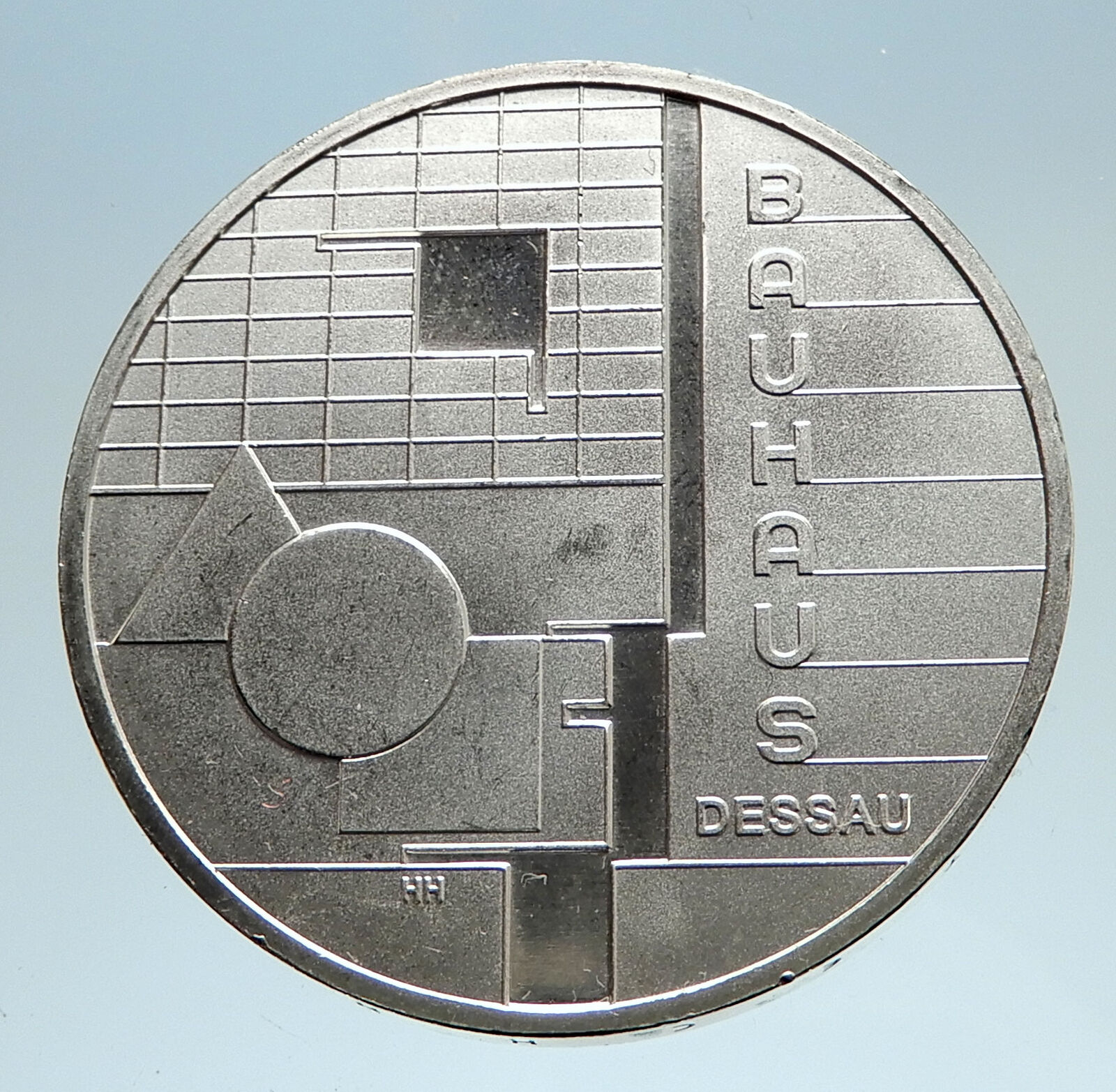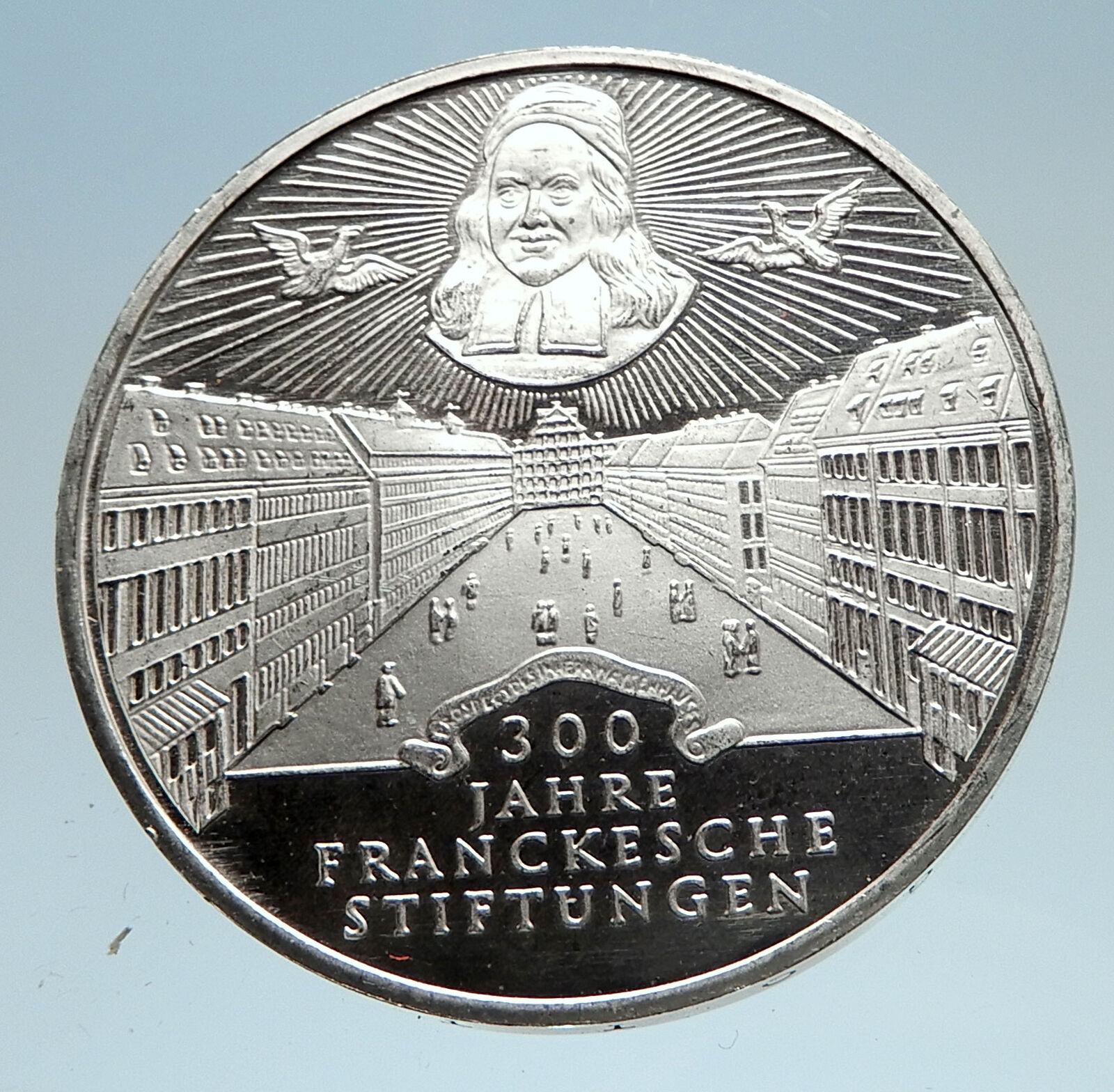|
Item: i75186 |
|
Germany – 200th Year of Death of Friedrich von Schiller
Ludwig van Beethoven said that a great poem is more difficult to set to music than a merely good one because the composer must rise higher than the poet – “who can do that in the case of Schiller? In this respect Goethe is much easier,” wrote Beethoven. There are relatively few famous musical settings of Schiller’s poems. Notable exceptions are Beethoven’s setting of “An die Freude” (Ode to Joy) in the final movement of his Ninth Symphony, Johannes Brahms’ choral setting of “Nänie” and “Des Mädchens Klage” by Franz Schubert, who set 44 of Schiller’s poems as Lieder, mostly for voice and piano, also including “Die Bürgschaft”. In 2005 Graham Waterhouse set Der Handschuh (The Glove) for cello and speaking voice. The Italian composer Giuseppe Verdi admired Schiller greatly and adapted several of his stage plays for his operas: I masnadieri is based on The Robbers; Giovanna d’Arco on The Maid of Orleans; Luisa Miller on Intrigue and Love; La forza del destino is based partly on Wallenstein; and Don Carlos on the play of the same title. Donizetti’s Maria Stuarda is based on Mary Stuart, and Rossini’s Guillaume Tell is an adaptation of William Tell. Nicola Vaccai’s Giovanna d’Arco (1827) is based on The Maid of Orleans and his La sposa di Messina (1839) on The Bride of Messina. Tchaikovsky’s 1881 opera The Maid of Orleans is partly based on Schiller’s work. The 20th-century composer Giselher Klebe adapted The Robbers for his first opera of the same name, which premiered in 1957.
In the 21st century, Germany is a great power and has the world’s fourth-largest economy by nominal GDP, as well as the fifth-largest by PPP. As a global leader in several industrial and technological sectors, it is both the world’s third-largest exporter and importer of goods. Germany is a developed country with a very high standard of living sustained by a skilled and productive society. It upholds a social security and universal health care system, environmental protection and a tuition free university education. Germany was a founding member of the European Union in 1993. It is part of the Schengen Area, and became a co-founder of the Eurozone in 1999. Germany is a member of the United Nations, NATO, the G8, the G20, and the OECD. The national military expenditure is the 9th highest in the world. Known for its rich cultural history, Germany has been continuously the home of influential artists, philosophers, musicians, sportsmen, entrepreneurs, scientists and inventors. |
Frequently Asked Questions
Who am I dealing with?
How long until my order is shipped?
How will I know when the order was shipped?
What is a certificate of authenticity and what guarantees do you give that the item is authentic?
Is there a money back guarantee?
When should I leave feedback?
How and where do I learn more about collecting ancient coins?
|





 Johann Christoph Friedrich von Schiller (German: [ˈjoːhan ˈkʁɪstɔf ˈfʁiːdʁɪç fɔn ˈʃɪlɐ]; 10 November 1759 – 9 May 1805) was a German poet, philosopher, physician, historian, and playwright. During the last seventeen years of his life (1788-1805), Schiller struck up a productive, if complicated, friendship with the already famous and influential Johann Wolfgang von Goethe. They frequently discussed issues concerning aesthetics, and Schiller encouraged Goethe to finish works he left as sketches. This relationship and these discussions led to a period now referred to as Weimar Classicism. They also worked together on Xenien, a collection of short satirical poems in which both Schiller and Goethe challenge opponents of their philosophical vision.
Johann Christoph Friedrich von Schiller (German: [ˈjoːhan ˈkʁɪstɔf ˈfʁiːdʁɪç fɔn ˈʃɪlɐ]; 10 November 1759 – 9 May 1805) was a German poet, philosopher, physician, historian, and playwright. During the last seventeen years of his life (1788-1805), Schiller struck up a productive, if complicated, friendship with the already famous and influential Johann Wolfgang von Goethe. They frequently discussed issues concerning aesthetics, and Schiller encouraged Goethe to finish works he left as sketches. This relationship and these discussions led to a period now referred to as Weimar Classicism. They also worked together on Xenien, a collection of short satirical poems in which both Schiller and Goethe challenge opponents of their philosophical vision.  Germany, officially the Federal Republic of Germany is a federal parliamentary republic in western-central Europe. It includes 16 constituent states and covers an area of 357,021 square kilometres (137,847 sq mi) with a largely temperate seasonal climate. Its capital and largest city is Berlin. With 81 million inhabitants, Germany is the most populous member state in the European Union. After the United States, it is the second most popular migration destination in the world.
Germany, officially the Federal Republic of Germany is a federal parliamentary republic in western-central Europe. It includes 16 constituent states and covers an area of 357,021 square kilometres (137,847 sq mi) with a largely temperate seasonal climate. Its capital and largest city is Berlin. With 81 million inhabitants, Germany is the most populous member state in the European Union. After the United States, it is the second most popular migration destination in the world. Various Germanic tribes have occupied northern Germany since classical antiquity. A region named Germania was documented before 100 CE. During the Migration Period the Germanic tribes expanded southward. Beginning in the 10th century, German territories formed a central part of the Holy Roman Empire. During the 16th century, northern German regions became the centre of the Protestant Reformation.
Various Germanic tribes have occupied northern Germany since classical antiquity. A region named Germania was documented before 100 CE. During the Migration Period the Germanic tribes expanded southward. Beginning in the 10th century, German territories formed a central part of the Holy Roman Empire. During the 16th century, northern German regions became the centre of the Protestant Reformation. The rise of Pan-Germanism inside the German Confederation resulted in the unification of most of the German states in 1871 into the Prussian-dominated German Empire. After World War I and the German Revolution of 1918-1919, the Empire was replaced by the parliamentary Weimar Republic. The establishment of the Third Reich in 1933 led to World War II and the Holocaust. After 1945, Germany split into two states, East Germany and West Germany. In 1990, the country was reunified.
The rise of Pan-Germanism inside the German Confederation resulted in the unification of most of the German states in 1871 into the Prussian-dominated German Empire. After World War I and the German Revolution of 1918-1919, the Empire was replaced by the parliamentary Weimar Republic. The establishment of the Third Reich in 1933 led to World War II and the Holocaust. After 1945, Germany split into two states, East Germany and West Germany. In 1990, the country was reunified.




